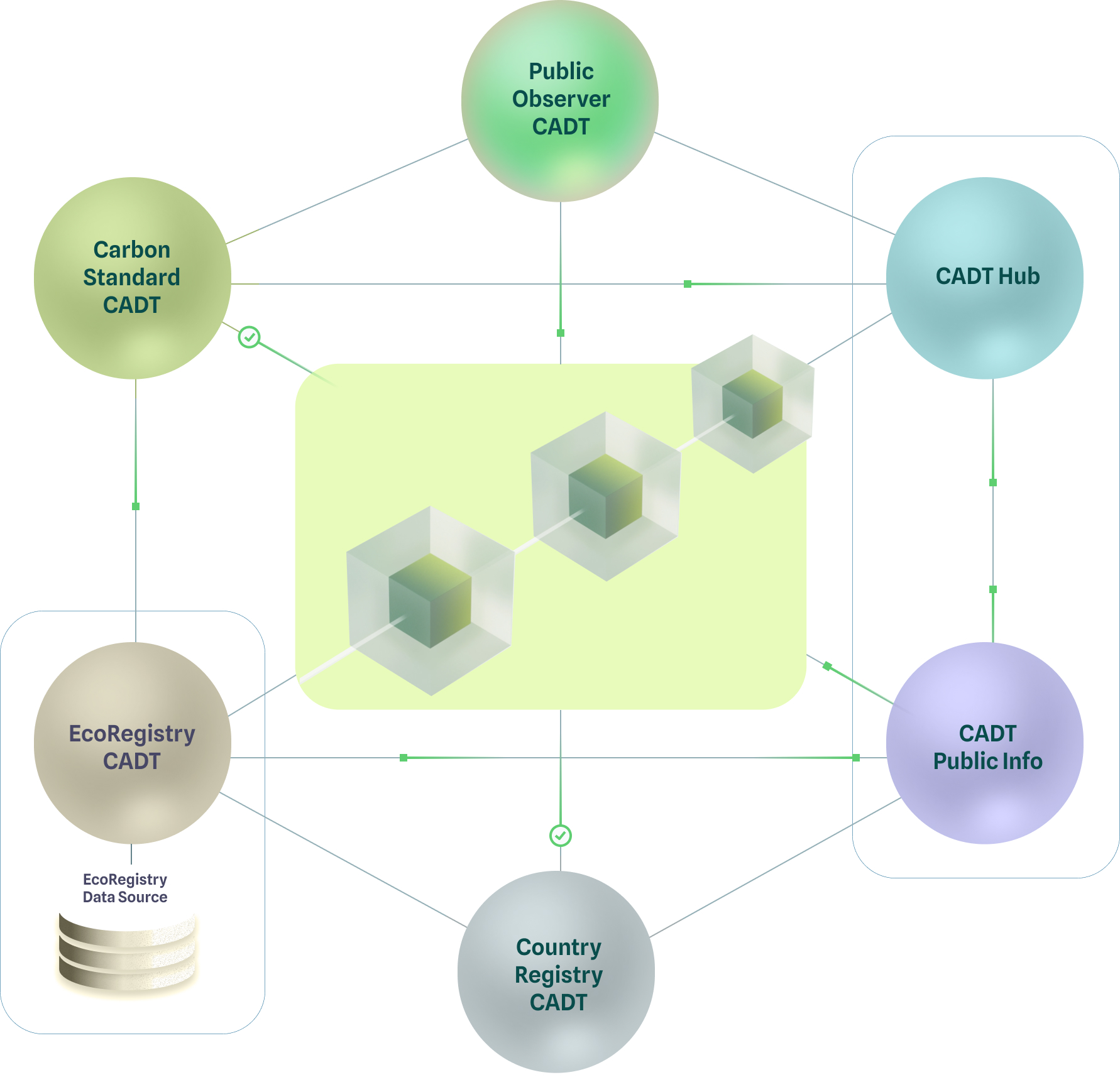Can blockchain help fix carbon market challenges?
Facing an existential crisis, the Paris Agreement seeks to limit warming to 1.5° C (2.7° F) through global collaboration. The carbon market plays a vital role in realizing this goal, but it wasn’t initially built to address the scope and scale of today’s challenge or with the advancement of technology in mind. Many foundational technologies and processes powering the carbon market today are outdated, but they don’t have to be. To most effectively serve its purpose, it must have better accounting with clear standards, more transparency into the projects and credits, and increased efficiency for those looking to transact.
At Chia, we believe in the power and value of the carbon market. We also believe that with the capabilities available today, we can catalyze the evolution of the carbon market into a more transparent and democratized ecosystem, thereby ensuring quality, enabling innovation, and driving progress toward climate action. Some of these new capabilities are only feasible through the responsible architecture and deployment of blockchain technology.
Bringing Transparency, Efficiency, and Quality to carbon markets
Immutable Transparency
Public blockchains create immutable records. No party can edit the history of transactions or transaction attributes secured on the blockchain because every participating node stores a copy of the entire database. Increasing the number of nodes increases the immutability and durability of the recorded data. More nodes lead to better security and increased transparency. The Chia blockchain is one of the most decentralized blockchains, with more than 100,000 nodes globally — over 100,000 copies of every recorded transaction are secured worldwide.

The Climate Action Data Trust (CADT) is a decentralized metadata platform launched by the World Bank, carbon registries, IETA, Singapore, and additional countries, to link, aggregate, and harmonize major carbon registry data. Unlike other initiatives, the CADT relies on a peer-to-peer network of equal participants (carbon standards and registries), each publishing their data on the blockchain. In this way, the technology framework mirrors the Paris Agreement’s approach to multilateral cooperation. Through the immutability of the Chia blockchain technology, all critical information related to climate mitigation will be available via the CADT and the blockchain, whether the registries cease to operate or a registry technology change leads to missing historical information. It is important to emphasize that participation in CADT is possible regardless of whether a registry utilizes blockchain technology or is entirely off-chain in a centralized database architecture.
Verifiable Ownership
Today’s carbon market relies on centralized registries that do not communicate or allow for transfers between each other. Most carbon market players will be exposed to several of these systems as their digital carbon asset portfolio often spans various standards.
Buying and holding carbon assets in today’s market infrastructure is equivalent to entering a department store, picking out and purchasing a product, but not being able to take it out of the store. For a carbon market valued in the billions of dollars, with participation from increasingly large institutional players, including governments, this causes several problems. For example, account security provisions (logins, environments, etc.) are mostly outside of your control, application interfaces to the assets in your portfolio are restricted, and access to your carbon portfolio is at the discretion of a sole operator and subject to risk if databases become inoperable or discontinued, even for governments managing projects in their own country.
We can create true digital carbon assets by issuing or tokenizing them on a blockchain with a proper wallet structure, allowing for complete control, use, or disposal of an asset by its rightful owner — without dependency on any third party.
The insular state of the asset infrastructure in today’s carbon markets severely impedes future growth and improvement and is not a tenable solution for reaching the Paris Agreement’s 1.5° goal. Tokenization of carbon credits is not a solution in itself, but it reduces the risk and exposure of possessing carbon assets and simplifies the management of a more extensive portfolio of carbon assets. More importantly, it enables the growth of new products and solutions for the carbon markets as it establishes the fundamental open ecosystem.
Trusted Controls
A blockchain-enabled open ecosystem allows market innovators (i.e., carbon standards, certification agencies, labeling programs, etc.) to define their specific solution implementation and governance policies while still relying on the utility of a blockchain to secure transactions, immutability, and transparency.
For example, a carbon standard leveraging blockchain technology can define criteria for who can transact their specific assets (i.e., legal status, jurisdiction, accredited, beneficial owner, etc.) while outsourcing the work of confirming those criteria to an entity specializing in this. Similarly, data for measurement, verification, and validation of carbon project activities can be authorized immediately and reported on-chain, ensuring complete transparency and trust for project information from inception to issuance to end-use claim. Blockchain can also support mandating permissioned retirements, required disclosures (i.e., pricing), and royalties (to project developers or standards).
The Know-Your-Client (KYC), Measurement, Verification, and Reporting (MRV), retirement transparency, and project royalty examples listed above are just the beginning of potential use cases, and we encourage you to get in touch to explore these and additional opportunities.
Chia Innovation
Not all blockchains are created equal, and not all can provide the functionality outlined above. Using its decentralized structure, coin-set model, blockchain technology ‘primitives,’ and Chialisp programming environment, the Chia blockchain offers a novel and inherently sustainable platform for enhanced transparency and increased security — critical and necessary components for the next evolution of carbon market infrastructure technology.
original source – www.chia.net/2023/05/12/can-blockchain-help-fix-carbon-market-challenges/
